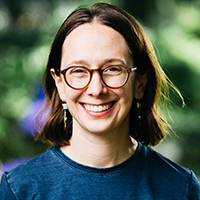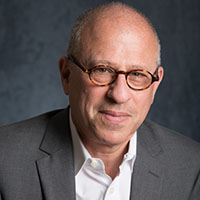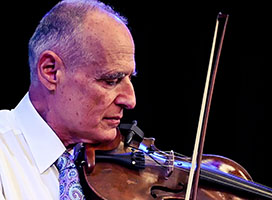Three Pillars – An Inspirational Series
Individual Session: $20
March 9, 2023 | 7:30 p.m.
Sara Labaton, Shalom Hartman Institute
The Conversation Between American and Israeli Jews After 75 years
Sara will join us in person for this inspirational presentation.
Dr. Sara Labaton is Director of Teaching and Learning at the Shalom Hartman Institute of North America, where she serves as a conduit between the Kogod Research Center and program directors, overseeing programmatic excellence and ensuring that research topics and content are informed by the realities of the field and experience of program participants. She was a member of the inaugural cohort of North American David Hartman Center Fellows.
Sara received a B.A. in Religious Studies from Columbia University and a doctorate in Medieval Jewish Thought from the Skirball Department of Hebrew and Judaic Studies at NYU. Her doctoral thesis focused on the relationship between the esoteric and peshat hermeneutics in the commentaries of Abraham ibn Ezra, particularly with regard to ibn Ezra’s understanding of biblical cultic rituals.
Sara was a founding faculty member of Yeshivat Hadar, where she developed a Bible and Exegesis curriculum. She has taught in a variety of Jewish settings, most recently as a history instructor at the Frisch School. Her research interests include the intersection of ritual and relevance, ritual experimentation, and overcoming the binary of halakhic–non-halakhic/insider-outsider in Jewish ritual practice. As part of her participation in the Religious Worlds Seminar at the Interfaith Center of New York, Sara researched ways of integrating comparative religion into Jewish educational contexts.
Past Presentations
November 10, 2022 | 7 p.m.
Rabbi Steve Leder
Ethical Wills and why our words carry greater value than any physical things we can bequest to our loved ones.
This is a virtual presentation.
After receiving his degree in writing and graduating Cum Laude from Northwestern University, and time studying at Trinity College, Oxford University, Rabbi Leder received a Master’s Degree in Hebrew Letters in 1986 and Rabbinical Ordination in 1987 from Hebrew Union College. He currently serves as the Senior Rabbi of Wilshire Boulevard Temple, a prestigious synagogue in Los Angeles with three campuses and 2,700 families.
In addition to his many duties at Wilshire Boulevard Temple Rabbi Leder taught Homiletics for 13 years at Hebrew Union College in Los Angeles. He is a regular contributor and guest on The Today Show, writes regularly for TIME, Foxnews.com, Maria Shriver’s Sunday Paper, Woman’s Day Magazine, contributed a chapter to Charles Barkley’s book Who’s Afraid of a Large Black Man?, and has published essays in Town and Country, the Los Angeles Times, USA Today and the Los Angeles Jewish Journal where his Torah commentaries were read weekly by over 50,000 people. His sermon on capital punishment was included in an award winning episode of The West Wing. He regularly appears on CNN, NPR and Spectrum 1 News. Rabbi Leder received the Louis Rappaport Award for Excellence in Commentary by the American Jewish Press Association and the Kovler Award from the Religious Action Center in Washington D.C. for his work in African American/Jewish dialogue and in 2012 presented twice at the Aspen Ideas Festival.
In the New York Times, William Safire called Rabbi Leder’s first book The Extraordinary Nature of Ordinary Things “uplifting.” Pulitzer Prize winning playwright Wendy Wasserstein said he “is everything we search for in a modern wise man; learned, kind, funny, and non-judgmental, he offers remarkably healing guidance.”
Rabbi Leder’s second book More Money Than God: Living a Rich Life Without Losing Your Soul received critical and media attention including feature articles in the New York Times, Town and Country and appearances on ABC’s Politically Incorrect, NPR, and CBS This Morning.
His third book More Beautiful Than Before; How Suffering Transforms Us reached #4 on Amazon’s overall best sellers list in its first week. It remains a best seller in several categories and has been translated into Korean and Chinese. His book The Beauty of What Remains; How Our Greatest Fear Becomes Our Greatest Gift was published by Penguin Random House in January, 2021. Publisher’s weekly called it “…elegant and compassionate” and it quickly became a national best seller. Rabbi Leder’s newest book For You When I Am Gone; Twelve Essential Questions to Tell a Life Story, also published by Penguin Random House, launched on June 7, 2022.
Newsweek Magazine twice named him one of the ten most influential rabbis in America but most important to Steve is being Betsy’s husband and Aaron and Hannah’s dad. He is also a Jew who likes to fish. Go figure.
December 8, 2022 | 7 p.m.
Tim Lorsch
The Suitcase – a one-man multimedia show that tells of one family’s experiences before, during and after the Holocaust.
The Suitcase is a one man multimedia show that blends narrative storytelling, photos, video and music to tell of one family’s experience before, during and after the Holocaust. The music is all original and performed live using looping technology to weave layered story elements through classical string instruments. The project serves to reflect on what one family endured as antisemitism grew in Germany, when nationalism, intolerance, and dehumanization were allowed to prosper. Ultimately, it is a meditation on the hope and resilience of immigrants determined to thrive and forge new lives for themselves and their children when forced to leave their homeland to survive.
Tim Lorsch is a Nashville based musician, producer and composer. He has worked with artists as diverse as Keith Urban, Ray Price, Percy Sledge and John Adams.
He is, also, the son of Jews who fled from Nazi Germany. Before the Holocaust, Germany was a golden paradise for the Jewish people. In less than a decade, that all ended.
In 2016, a suitcase was found in the Czech Republic. The suitcase belonged to one of Tim’s great uncles. It miraculously made its way to Tennessee.
This project serves to tell his family’s story through images and music. It reflects the hopes, dreams, resilience, and vulnerability of the immigrant experience – it’s a story of refugees and community; a story of survival.






